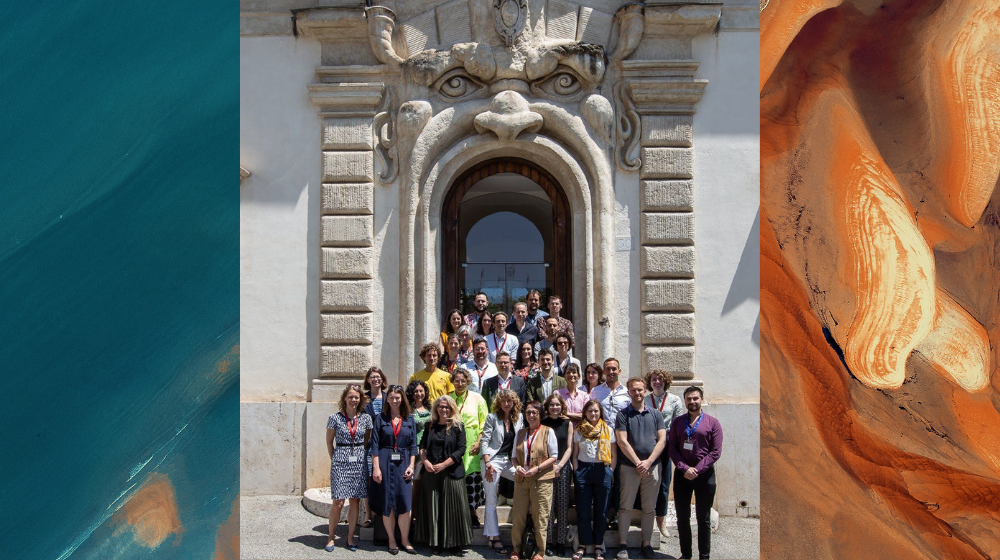In the ever-evolving landscape of scholarly inquiry, the shift from analogue and mechanical to digital technologies known as the Digital Turn marks a pivotal moment, characterised by a convergence of technological advancements, new methods of information dissemination, and changing research practices. This transformative phase bears striking similarities to the Early Modern period (circa 1450-1700), where new tools such as the telescope and microscope, alongside the advent of the printing press, revolutionised scientific inquiry. Just as early modern scientists began to ask new questions about nature and the world, today's researchers are leveraging digital technologies to explore ideas and phenomena in novel ways. In both instances, the relationship between the tools of scientific inquiry and the scope of research is evident, echoing the SSI mantra: better software, better research.
During the conference Visualizing Science in Media Revolutions at the Bibliotheca Hertziana - Max Planck Institute for Art History in Rome, led by Dr Sietske Fransen, these parallels were explored in depth. Among the highlights of the research group’s activities presented at the conference was a summary of the seminar series "Reflections on the Digital Turn in the Humanities and Sciences", organised by Sietske Fransen and myself. Held between October 2020 and December 2021, amidst the height of the pandemic, these seminars brought together 21 speakers from diverse backgrounds and countries, including scholars, artists, curators, archivists, and library professionals. Topics spanned a wide array, encompassing the shift from analogue to digital formats, advancements in book history, digital correspondence curation, image analysis tools, information management practices, digital model use, and the pandemic's impact on digital transition and remote collaboration.
A final publication detailing the outcomes of the seminars will be published in 2025 as part of the conference proceedings. A recurring theme throughout our discussions was the profound impact of the Digital Turn on scholarly practices. The accelerated shift to digital spaces, propelled by the pandemic, has facilitated broader participation and inclusivity in scholarly discourse. However, this development has also underscored the necessity of digital capital, highlighting the critical infrastructure and skills necessary to navigate the evolving digital landscape. Moreover, the reliance on digital tools and resources has exacerbated societal inequalities and raised concerns about data privacy, copyright, and the ethical representation of historical materials.
Many speakers emphasised the enduring importance of foundational skills such as archival work and manuscript editing. These aid in mitigating existing biases in library research collections, which are often amplified by current digitisation strategies that focus on the most researched and notable parts of their collections.
Another prevalent theme in the seminars was the shift from analogue to digital formats. Like their early modern counterparts in the age of the printing press, the advent of new technologies has revolutionised the way information is accessed, visualised, and analysed. Presenters explored the challenges and opportunities associated with digitising and consolidating diverse collections, stressing the significance of adopting shared standards to improve the discoverability and reusability of data, thereby enhancing its sustainability.
Similar to how the emergence of printing shops facilitated the convergence of scholars, printers, artists, and artisans from diverse national and cultural backgrounds, one of the most significant impacts of the Digital Turn on scholarly practices is its demand for a broader skill set and increased collaboration among scholars, data scientists, researchers, artists, and research software engineers. In this vein, the proliferation of new technologies and media has not only revolutionised how scholars and scientists access, visualise, and analyse information, but also catalysed the emergence of new communities of inquiry, fostering interdisciplinary collaborations and the cross-fertilisation of ideas. However, while collaborative efforts between the humanities and sciences foster innovation and raise new questions, the indiscriminate application of disciplinary tools from one field to datasets from another carries inherent risks.
In conclusion, it is imperative to highlight the necessity of ongoing reflection and adaptation in response to evolving technologies and research methodologies. Scholars must remain vigilant in critically evaluating the implications of digital interventions on knowledge production and dissemination, ensuring the equality, diversity, inclusivity, and accessibility of scholarly practice. By embracing interdisciplinary collaboration and innovative approaches in an equitable manner, we can navigate the complexities of the Digital Age and drive meaningful change in the pursuit of knowledge, advancing our understanding of the past, present, and future.


